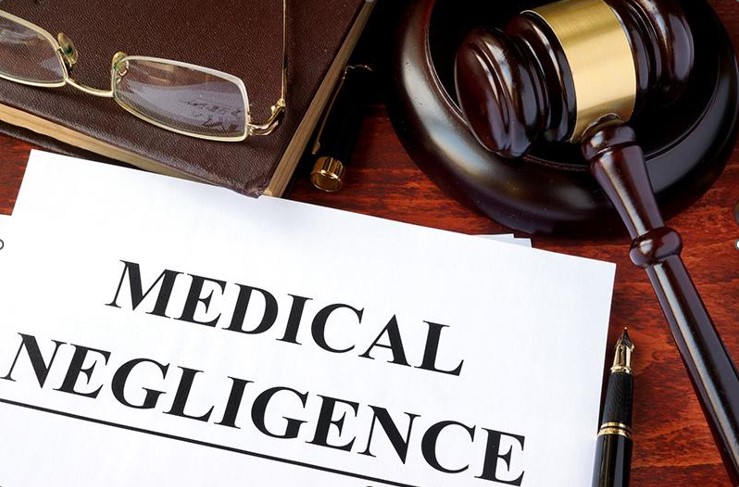Medical negligence is a complex area of law that deals with the legal responsibility of healthcare providers for the harm caused to their patients due to their failure to provide the required standard of care. When healthcare professionals breach their duty of care towards their patients and cause injury or harm, it is essential to have an understanding of medical negligence law to seek compensation and justice. This area of law is crucial for ensuring patient safety and protecting their rights.
In this context, this article aims to provide a comprehensive understanding of medical negligence law, including the legal rights of patients, the responsibilities of healthcare professionals, and the remedies available to victims of medical negligence. Through this article, we will explore the various aspects of medical negligence law, such as the elements of a medical negligence claim, the burden of proof, the standard of care, and the role of expert witnesses. This article is intended to provide a helpful guide for those who have been affected by medical negligence and wish to seek legal recourse.
Legal Rights And Responsibilities In Medical Negligence Claims
The Duty Of Care In Medical Treatment
The duty of care is a legal obligation that healthcare professionals have towards their patients. It requires them to provide medical treatment that is of an acceptable standard, given the circumstances of the patient’s condition. This includes providing adequate advice, diagnosis, treatment, and follow-up care. The duty of care also requires healthcare professionals to obtain informed consent from their patients before providing medical treatment.
Elements Of A Medical Negligence Claim
To establish a medical negligence claim, four essential elements must be proven. These include:
It is the responsibility of the healthcare professional to provide a duty of care to their patient.
The duty of care that the healthcare professional owed to the patient was not fulfilled, indicating a breach.
The patient suffered harm or injury as a result of the breach of duty.
The harm or injury suffered was caused by the healthcare professional’s breach of duty.
Burden Of Proof And The Standard Of Care
In a medical negligence claim, the burden of proof rests with the plaintiff (the patient). The plaintiff must prove that the healthcare professional breached their duty of care and caused them harm.
In claims of medical negligence, the standard of care refers to the level of care that would have been reasonably provided by a competent healthcare professional with equivalent qualifications and experience under similar circumstances. Medical experts are often called upon to provide evidence on what the standard of care should be in a particular case.
Legal Rights Of Victims Of Medical Negligence
Patients who have suffered harm as a result of medical negligence have legal rights that protect them. These include the right to compensation for their losses, such as medical expenses, lost income, and pain and suffering.
Patients also have the right to access their medical records and to be informed about their medical condition and treatment. Patients have the right to seek legal advice and representation to help them understand their legal options.
Responsibilities Of Healthcare Professionals
Healthcare professionals have legal and ethical responsibilities to their patients. These include providing medical treatment that is of an acceptable standard, obtaining informed consent before providing medical treatment, maintaining patient confidentiality, and providing follow-up care.
Healthcare professionals are also responsible for maintaining accurate medical records and for reporting adverse events or incidents that may have occurred during the provision of medical treatment. Healthcare professionals who breach their duty of care may be subject to disciplinary action, as well as civil or criminal liability.
Remedies For Victims Of Medical Negligence
Compensation For Damages
Victims of medical negligence may be entitled to compensation for the damages they have suffered. This may include medical expenses, lost income, and pain and suffering. The amount of compensation awarded depends on the extent of the harm suffered and the specific circumstances of the case. In some cases, compensation may be awarded for future expenses, such as ongoing medical treatment and rehabilitation.
Alternative Dispute Resolution
Alternative dispute resolution (ADR) methods, such as mediation and arbitration, can be used to resolve medical negligence claims outside of court. ADR can be a faster and less expensive alternative to going to court, and may also allow for a more collaborative and less adversarial approach to resolving disputes.
ADR methods are not always appropriate for medical negligence claims, however, and the decision to use ADR should be made on a case-by-case basis.
Class Action Lawsuits In Medical Negligence Cases
In some cases, a group of patients who have been harmed by the same healthcare professional or institution may choose to file a class action lawsuit. A class action lawsuit allows multiple plaintiffs to join together in a single lawsuit, which can be more efficient and cost-effective than individual lawsuits. However, class action lawsuits can also be complex and may require specialized legal expertise.
Criminal Liability For Medical Negligence
In some cases, medical negligence may rise to the level of criminal conduct. Criminal liability for medical negligence may be imposed when a healthcare professional’s conduct is so reckless or grossly negligent that it amounts to a criminal offense, such as manslaughter or criminal negligence causing bodily harm. Criminal liability for medical negligence is relatively rare, however, and is reserved for the most serious cases.
Preventing Medical Negligence And Ensuring Patient Safety
Preventing medical negligence and ensuring patient safety an important part of the healthcare system. Healthcare professionals and institutions have a responsibility to implement policies and procedures that minimize the risk of harm to patients. This includes providing adequate training and resources, maintaining accurate and complete medical records, and implementing appropriate quality control measures.
Patients can also play a role in preventing medical negligence by being informed and involved in their healthcare, asking questions, and reporting any concerns or incidents to their healthcare provider.
In addition to preventing medical negligence and ensuring patient safety, healthcare professionals and institutions also have a legal responsibility to be accountable for any harm caused to patients, including wrongful death.
Wrongful death lawsuits can be brought by the family members or estate of a patient who has died as a result of medical negligence and may seek compensation for damages such as funeral expenses, lost income, and loss of companionship.
In conclusion, medical negligence is a serious issue that can result in harm to patients and legal consequences for healthcare professionals and institutions. Understanding medical negligence law is important for both patients and healthcare providers, as it involves rights, responsibilities, and remedies that are critical to ensuring patient safety and holding healthcare providers accountable for their actions.
By understanding the duty of care, the burden of proof, and the standard of care required of healthcare professionals, patients can better protect themselves and hold healthcare providers accountable for any harm caused. Additionally, healthcare providers and institutions have a responsibility to implement policies and procedures that minimize the risk of harm to patients and to be accountable for any harm caused.
By working together, patients and healthcare providers can help prevent medical negligence and ensure that patients receive the best possible care.




























